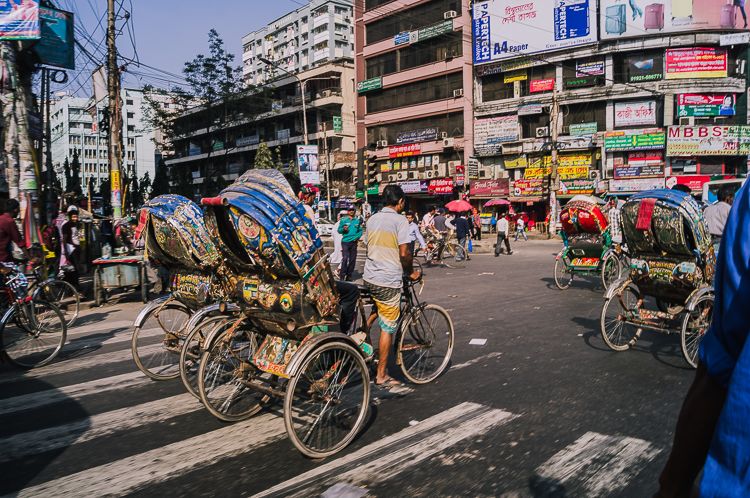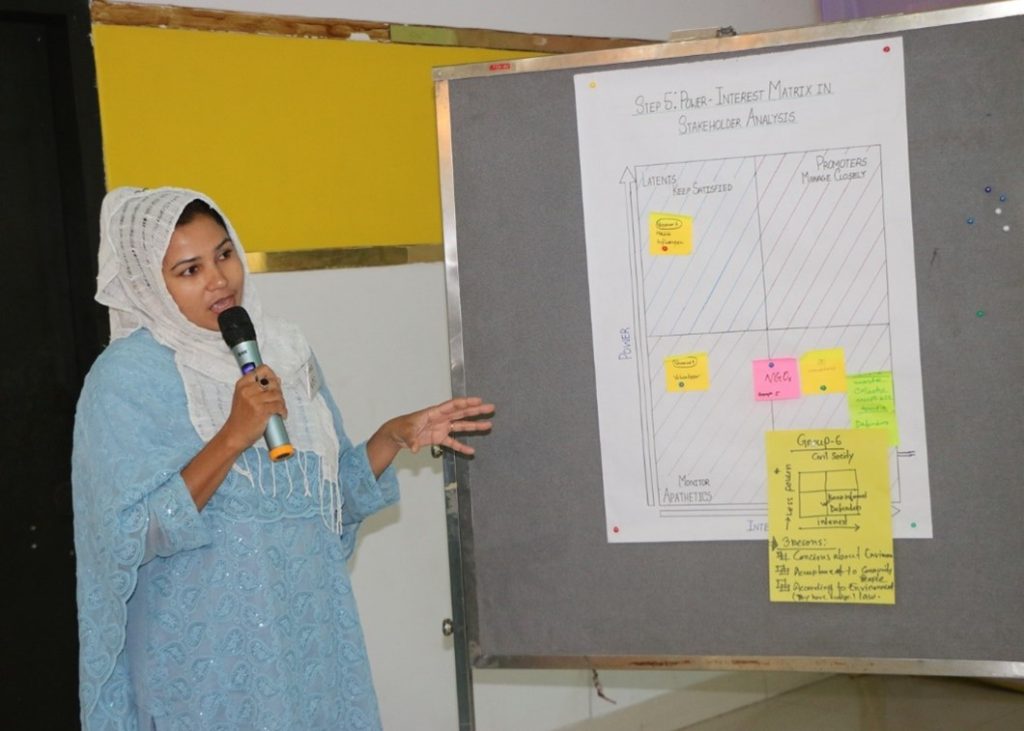Localising SDGs within Bangladesh municipalities

Bangladesh is expected to graduate from the status of a Least Developed Country (LDC) by 2026. However, economic development is at risk due to the impact of climate change. According to the Global Climate Risk Index (CRI) 2020, Bangladesh ranks 7th among the 10 countries most affected by extreme weather events. Adapting to climate change is thus vital to the country’s development. Furthermore, having one of the highest urbanisation rates, 50 % of Bangladesh’s population is expected to live in urban areas by 2037. Therefore, the focus of SDG Localisation in urban areas is essential for Bangladesh.
The joint GIZ project ‘Improved Coordination of International Climate Finance’ (ICICF) implemented with the Economic Relations Division (ERD) within the Ministry of Finance, is addressing the country’s capacity development at local and national level to improve the access to finance and supporting to reach the Susatinabe Development Goals (SDGs).
Due to the dependency on additional funds to meet the financing needs for addressing climate change, the country plans to receive increased access to international climate finance by the following:
- approaching bilateral and multilateral development partners and international funding sources and
- mobilising sustainable finance from the private sector.
These approaches are being integrated into the national 8th Five Year Plan and in the SDG Financing Strategy. Bangladesh already developed national priority targets, a SDG Mapping, a SDG financing strategy and a national action plan, as well as a monitoring and evaluation framework to increase national SDG efforts Nevertheless, due to the lack of tools and capacities of local officials, local efforts of SDG processes are not being reported to the national level and are not included into the Voluntary National Reviews (VNRs).
Improving capacities to report SDG efforts to the national level
The joint project is focusing on developing climate projects that are ready for financing and address the involvement of the private sector. It is aiming to mobilise additional sources of climate finance through the three objectives:
- Support of the establishment of an International Climate Finance Cell at the Ministry of Finance to access financing
- Development of bankable climate projects achieving SDGs in cooperation with the private sector to pitch to funders and
- Involvement of local level actors in the achievement of the SDGs in the context of adaptation projects.
With the focus on objective 3, the project highlights the need for improved capacities to recognise SDG contributions on the local level and report the SDG achievements to the national level. The localisation of the SDGs is implemented together with the Governance Innovation Unit (GIU) and the Bangladesh Prime Minister’s Office (PMO), which holds the main coordination function for SDGs in Bangladesh.
The National Institute of Local Government (NILG) has the role of building capacities and concluding relevant research activities at the local level within governmental institutions. An SDG Manual developed by NILG is focusing on the localisation within district and sub-district level. In combination with the toolkit City WORKS, the SDG localisation process could be further expanded to local government institutions and address their major environmental and sustainability issues. Working closely with GIZ, NILG and a team of national experts from Bangladesh University of Engineering and Technology, a team of international consultants has supported the development, customisation and validation of a comprehensive and practice-oriented training approach and a specific excel- based localisation tool for local government institutions officials. The tool was tested with 13 officials of one city cooperation and was revised after receiving feedback of its different city departments.
Implementation of City WORKS and the SDG Manual
In total, 15 NILG and 2 GIU trainers received a training of City WORKS. The jointly developed and customized approach also being included in the NILG annual course curricula. Afterwards, a training called “Tools and Methods of SDG Localisation for City Corporations and Municipalities of Bangladesh” was conducted with the participation of 31 officials and 8 selected representatives of six city corporations and municipalities. By having representatives from the Prime Minister’s Office, the NILG and from municipalities, the trainees gained an improved understanding on how to localise SDGs, how to design and implement projects that are aligned with the SDGs as well as on how to report properly their implementation.
The training was constructed in assessing the local priorities and a baseline and built on already conducted efforts of linking global goals and national indicators to project planning. Working together with national and local institutions provided a deeper understanding of the local needs and allowed the development of tailored training to meet the local demands. The user-friendly SDG Manual, an excel tool, allowed participants to develop and understand indicators of localisation processes.

Through the trainings, local government institutions improved their capacities to identify SDG contributions of their implementing projects. SDG progress can now be better quantified on the local level and be reported to the national level so that progress towards achieving the SDGs locally in Bangladesh can be upscaled.